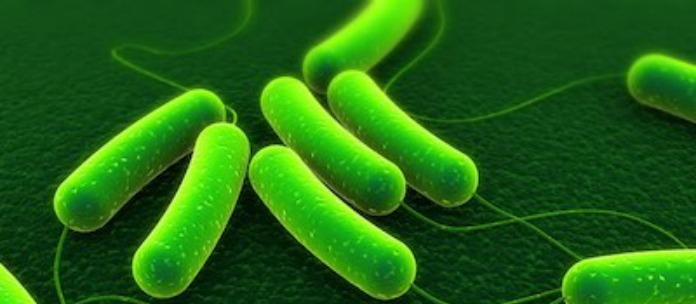The CDC, the FDA, and officials in several states are investigating an E. coli O157:H7 outbreak that has sickened at least 17 people in 13 states. The CDC notice states that the Public Health Agency of Canada is investigating a similar outbreak, which Food Poisoning Bulletin has been reporting on. In Canada, 41 people are sick and one person died.

CDC is performing whole genome sequencing on samples from patients in the United States to see whether these illnesses are related to illness in Canada. Preliminary results show that the bacteria making people sick is “closely related genetically,” meaning that these patients likely share a common source of infection.
In Canada, the outbreak has been linked to romaine lettuce. In the United States, patients are being interviewed to see what they ate the week before they got sick. The CDC is still collecting information to discover whether there is a food item in common among those sickened, including leafy greens and romaine lettuce.
Leafy greens are a common vehicle for food poisoning outbreaks. These items can be contaminated in the field, during harvest, during transport, and during processing. Many outbreaks in the past have been linked to these types of foods.

Attorney Fred Pritzker said, “The long term consequences of an E. coli O157:H7 infection can be serious, including kidney disease.” Contact him at 1-888-377-8900.
Attorney Fred Pritzker, who has represented many clients sickened by pathogenic bacteria on leafy greens, said, “We don’t know what caused this particular outbreak, but consumers should pay attention to CDC statements when officials do identify a suspect food.” The CDC isn’t recommending that consumers avoid a food, but will release more information when it is available.
The case count by state in this E. coli O157:H7 outbreak is: California (3), Connecticut (2), Illinois (1), Indiana (1), Michigan (1), Nebraska (1), New Hampshire (2), New York (1), Ohio (1), Pennsylvania (1), Virginia (1), Vermont (1) and Washington (1). Illnesses started on dates from November 15 through December 8, 2017.
This strain of bacteria does produce Shiga toxins, which can destroy red blood cells. These misshapen blood cells will travel to the. kidneys, where they can block small tubes and cause kidney failure. There is no word on any hospitalizations, or whether any of the patients have developed hemolytic uremic syndrome (HUS).
The symptoms of an E. coli O157:H7 outbreak infection include severe and painful stomach and abdominal cramps, diarrhea that is bloody or watery, and a mild fever. Most people get sick within a few days, up to a week, after exposure to the bacteria. The symptoms of HUS include little or no urine output, easy bruising, a skin rash, lethargy, pale skin, and bleeding from the nose or mouth. If anyone in your household has been experiencing these symptoms, they should see a doctor as soon as possible.
The noted and experienced law firm of Pritzker Hageman successfully represents people harmed by adulterated food products in outbreaks throughout the United States. Its lawyers have won hundreds of millions of dollars for survivors of foodborne illness and families of loved ones, including the largest verdict in American history for a person harmed by E. coli and hemolytic uremic syndrome. The firm also publishes Food Poisoning Bulletin, a respected source for food safety news and information. Pritzker Hageman lawyers are regularly interviewed by major news outlets including the New York Times, CNN, and the Wall Street Journal. In addition, the firm represents people harmed by pathogenic microorganisms in Legionnaires’ disease, surgical site infection, and product liability cases.




